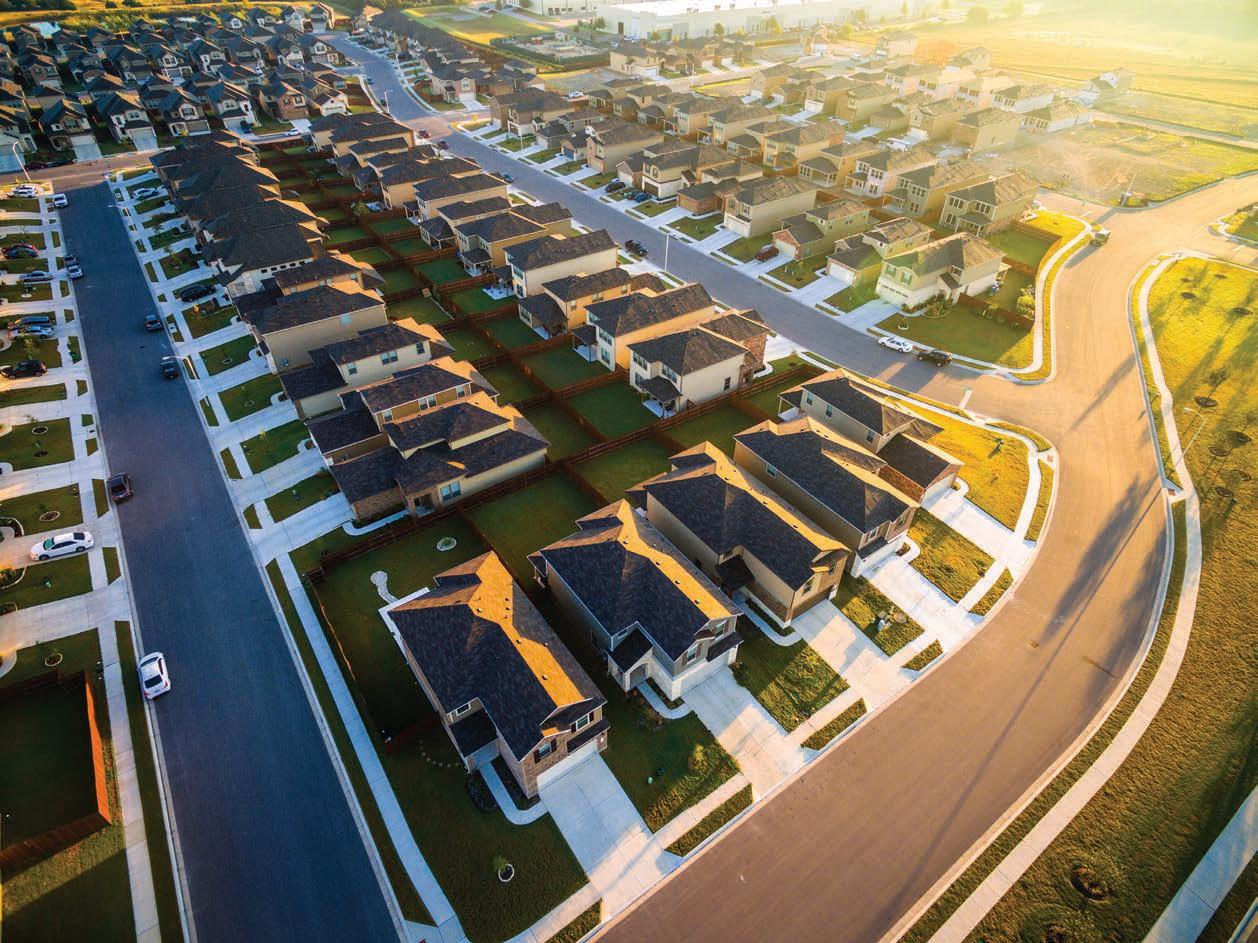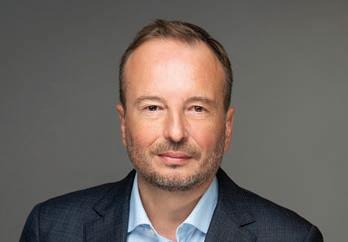
9 minute read
Middle East equity markets, a success story
There are signs of renewed optimism in 2022 and some degree of investor confidence appears to be returning which is being reflected by the number of companies that plan to go public in the last half of the year
Equity capital markets in the Middle East are still some of the best performing in the world this year as the market upheavals that followed the start of the war in Ukraine and hawkish central banks’ policies to tame the runaway inflation are keeping equity investors vigilant and defensive. The Middle East, specifically the oil-producing countries, is benefiting from high oil prices, which has translated into regional investors having additional capital to deploy.
Advertisement
“Middle Eastern countries that are petrochemical exporters, have largely outperformed Emerging Markets and global peers since February 2021, contiguous with the rise in oil prices and the spill through to the economy,” said Anita Krishna Gupta, the Head of Equity Strategy, CIO Office, Wealth Management Emirates NBD.
MENA’s initial public offering (IPO) activity continues to defy global trends and remains a bright spot in a challenging market. The demand for share sales remains at record highs and it has propped up equity benchmarks in the UAE and Saudi Arabia after GCC equity markets outperformed their global peers with a yearly return of 34.9% in 2021 for the MSCI GCC Index.
There are signs of renewed optimism in 2022 and analysts said that some degree of investor confidence appears to be returning which is being reflected in the number of companies that plans to go public in the last half of the year.
“The Middle East has been the busiest region within Europe, the Middle East and Africa (EMEA) in 2022 and that will attract more interest from international banks wanting to get involved,” Samer Deghaili, Head of Capital Markets for MENA and Turkey at HSBC Bank Middle East told S&P Global.
The booming MENA IPO market has seen a surge in reverse roadshows for investors as top Wall Street banks including Citigroup and JPMorgan Chase have brought their fund managers into the region to meet with several companies that are considering listing in the near term.
Booming IPO market
Dubai supermarket operator Union Coop’s public offering in July is the latest in a string
of blockbuster listings in the Middle East as the ongoing war in Ukraine and future interest rate hikes are forcing companies to shelve their IPO plans globally. E&Y said that 630 listings raised $95.4 billion in proceeds during the first half of the year globally, which is a significant 46% drop in the number of IPOs and 58% in the proceeds raised as compared to the corresponding period in 2021.
A record 24 listings in the MENA region raised $13.5 billion in the first six months of 2022, with Dubai Electricity & Water Authority’s (DEWA) public offering becoming the biggest IPO in the EMEA region since 2019. The IPO is also the largest to date in the UAE. The Dubai state-run utility firm raised $6.1 billion and its stock surged 20% on its trading debut on the Dubai Financial Market (DFM). DEWA’s shares closed at $0.70 (AED 2.60) apiece on 26 August 2022, which is higher than its IPO price of $0.67 (AED 2.48)
“The MENA region witnessed a 500% year-on-year increase in the number of companies listing during H1 2022 with 24 IPOs raising proceeds of $13.5 billion— an increase of 2,952% in value when compared to the same period in 2021,” said E&Y.
Borouge is also the latest listing on the Abu Dhabi Securities Exchange (ADX). The petrochemical firm’s shares soared more than 20% on its trading trade on 3 June 2022 to $0.82 (AED 3.00). Borouge’s stock is trading higher than the company’s listing price of $0.67 (AED 2.45) at $0.82 (AED 3.04) per share as of 26 August 2022.
Kuwait’s Ali Alghanim and Sons Automotive Company raised $321 million (KWD 98.96 million) through a private placement in June before listing on Boursa Kuwait in what is the first share sale by a family-owned business in seven years.
Saudi Arabia leads in MENA listing volume with five IPOs in the first half of the year. The Gulf state’s property developer Retal Urban Development is the latest company to debut on the Saudi Exchange following its $384 million (SAR 1.44 billion) in May. Retal, which offered 12 million shares or 30% of its issued share capital, has a market capitalisation of $1.3 billion (SAR 5 billion) as of 26 August 2022.
“MENA IPO activity continues to defy global trends and remains a bright spot in a challenging market. The number and value of deals in the second quarter of this year confirms that investors still have an appetite for growth, yield and diversification,” said Brad Watson, EY MENA Strategy and Transactions Leader.
Meanwhile, the Saudi Exchange’s parallel market, Nomu, received seven direct listings in H1 2022. The secondary market received four direct listings in Q1 2022 with no funds raised through a
public offering but with shares admitted to trading. However, Nomu raised a combined $40.8 million from the IPOs of the Arabian Food & Dairy Factories Company, Ladun Investment Company and Amwj International Company in the second quarter of the year.
Rudy Saadi, Director, Equity Capital Markets, Citi, said, “Given the number of IPOs recently priced, it is only a matter of time before we start seeing more activity in the secondary market i.e., Accelerated Equity Offerings, Fully Marketed Offerings and Exchangeable Bonds issuance.”
The Abu Dhabi bourse rebranded its parallel market into the Growth Market in April 2022 and Invictus Investment Company became the thirteenth company to be listed on the exchange.
– Anita Krishna Gupta, the Head of Equity Strategy, CIO Office, Wealth Management Emirates NBD
Growing competition
The privatisation programs in the Gulf states together with the rules and guidelines for equity capital markets issuance especially for IPOs are driving an increase in public
offerings that is heightening competition among local and international banks for advisory mandates. The IPO boom in the Middle East is also putting pressure on the fees these institutions can charge.
S&P Global said that the glut of IPOs is attracting growing interest from global investment banks. Global investment banks including Bank of America are reportedly sending their fund managers
– E&Y
to the Middle East to meet a range of companies from those that are preparing to go public to others that may consider doing so in the near term.
The heightened competition for advisory mandates is hurting the fees banks can command for their services in a region where underwriting fees tend to be lower than in other markets such as the US.
Citigroup, HSBC and Emirates NBD shared around $97 million (AED 357 million) in fees for working on DEWA’s landmark public offering, Bloomberg reported in April.
Meanwhile, global equity underwriting fees are expected to plunge by more than 50% this year as high market volatility due to rising inflation threatens to plunge the global economy into a recession.
Analytics firm Coalition Greenwich said that investor concerns about soaring inflation and tighter monetary policy are weighing on global listing activity while the market volatility that was triggered by the war in Ukraine in February extinguished any remaining risk appetite, putting IPOs around the world in a holding pattern until sentiment improves.
IPO outlook
Globally, the heightened volatility caused by the war in Ukraine and macroeconomic factors, declining valuation and poor postIPO share price performance have led to a significant drop in listing activity from a record year in 2021.
Meanwhile, the situation is different in the Middle East where state-backed entities are stepping up their efforts to boost domestic equity markets while supporting regional governments’ efforts to diversify their economies away from heavy reliance on oil revenues.
“There was about $15 billion of IPO issuance in the Middle East in the first half of the year, an impressive number. The pipeline is encouraging with at least 10 IPOs expected to come to the market in the next 12 months, in various sectors, on the condition they all receive regulatory approval on time,” said Saadi.
The UAE stock markets are bracing for yet another year of record listings including Emirates Global Aluminium, Empower and the Dubai road toll company ‘Salik.’ The IPOs of DEWA and TECOM Group in H1 2022 are part of the Dubai Government’s broader strategy to list 10 state-owned companies to boost trading volumes of the local bourse to $816.8 billion (AED 3 trillion) and catch up with ADX and the Saudi Exchange amid a climate economic optimism.
Stock markets in the Middle East are also offering sweeteners including flexibility on the minimum stake size required for
share sales and promises to reduce or forgo listing fees to boost listings.
The Deputy Ruler of Dubai, Sheikh Maktoum bin Mohammed bin Rashid Al Maktoum, said last November that his government approved the establishment of a market-maker fund worth up to $544.5 million (AED 2 billion) and a $272.2 million (AED 1 billion) fund to encourage domestic listings. Abu Dhabi’s Supreme Council for Financial and Economic Affairs also launched a $1.4 billion (AED 5 billion) IPO fund in October 2021 to incentivise private companies to list on the local exchange.
“Despite concern from investors regarding the risk of a global recession, there remains a healthy pipeline of IPO candidates from Saudi Arabia and the UAE, as well as quieter IPO markets such as Oman, Qatar and Kuwait, looking to come to market in the future,” said EY.
Oman’s OQ is reportedly considering an initial public offering (IPO) of its gas
pipeline network unit, and the stateowned energy firm has invited local and international banks to pitch for roles in the planned listing.
With a dozen of IPOs in the pipeline, it remains to be seen whether the Middle East equity indexes will remain among the world’s best performers after the last two listings in Dubai, Union Coop and property firm TECOM, tumbled on trading debut.
THERE WAS ABOUT $15 BILLION OF IPO ISSUANCE IN THE MIDDLE EAST IN THE FIRST HALF OF THE YEAR, AN IMPRESSIVE NUMBER. THE PIPELINE IS ENCOURAGING WITH AT LEAST 10 IPOS EXPECTED TO COME TO THE MARKET IN THE NEXT 12 MONTHS, IN VARIOUS SECTORS, ON THE CONDITION THEY ALL RECEIVE REGULATORY APPROVAL ON TIME
– Rudy Saadi, Director, Equity Capital Markets, Citi
– Brad Watson, EY MENA Strategy and Transactions Leader










